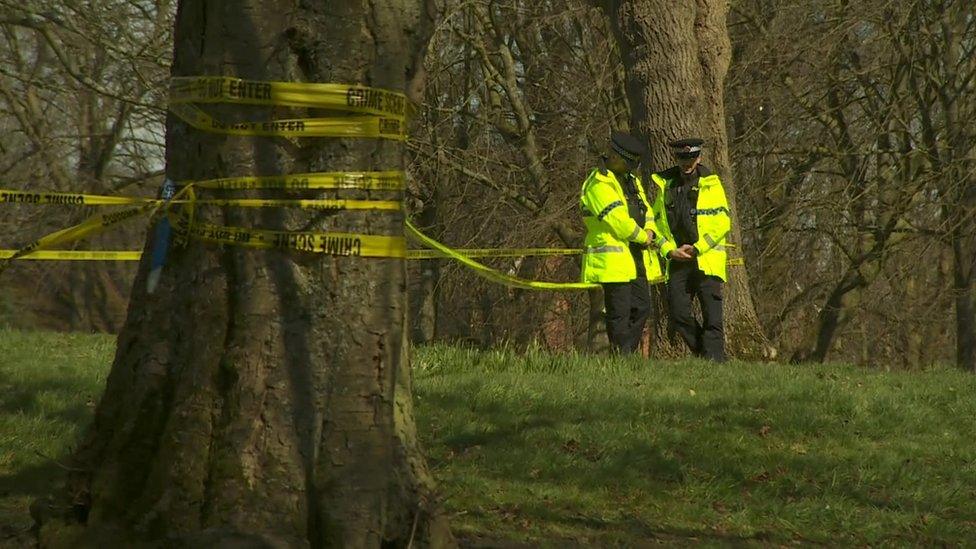Bolton park stab death: Child-killer 'missed taking medication'
- Published

Seven-year-old Emily Jones was stabbed as she played in Queen's Park, Bolton
A mentally-ill woman who slit the throat of a seven-year-old girl at a park on Mother's Day had not been taking her medication, a court heard.
Elation Skana, 30, who has paranoid schizophrenia, missed several days of taking anti-psychotic medication, Manchester Crown Court was told.
Emily Jones was killed in front of her parents in Bolton on 22 March.
Ms Skana admits manslaughter on the grounds of diminished responsibility but denies murder.
Michael Brady QC, prosecuting, told jurors the main issue was whether Ms Skana's paranoid schizophrenia was the reason behind the killing or "a convenient excuse behind which to hide?".
Dr Victoria Sullivan treated Skana at a medium secure mental health unit in Manchester after her arrest and detention under the Mental Health Act.
'Muttering to herself'
She told the court Ms Skana's sister, Olestra, turned up at the unit, "distressed".
"She told us Ms Skana had been missing days in her medication," Dr Sullivan said.
While on the unit Ms Skana was observed "muttering" to herself and turning her head abruptly as if to respond to visual stimuli.
She also claimed sometimes to see "angels" which communicated to her through gesticulations.
Dr Sullivan said: "I suspected she had either not been taking medication in the community or it had for some reason stopped working."
The court has heard Ms Skana, originally from Albania, came to the UK in 2014 and was injected with anti-psychotic drugs each month since 2017.
'Psychotic symptoms'
She lived in a flat in Bolton, while her mother, two sisters and brother lived in Manchester.
Dr Suhanthini Farrell, an on-call psychiatrist who assessed Ms Skana after her arrest, described her as "clean, well kempt," who maintained fixed, staring eye contact and was "guarded and suspicious" with a "tone of hostility and increasing irritability".
"It did feel she was thinking carefully about the answers she was giving, rather than responding intuitively, naturally," Dr Farrell told the court.
"My impression was there was active psychotic symptoms. The symptoms were subtle.
"Objectively she did appear to be paranoid."
The trial continues.

Why not follow BBC North West on Facebook, external, Twitter, external and Instagram, external? You can also send story ideas to northwest.newsonline@bbc.co.uk
- Published26 November 2020

- Published6 November 2020
